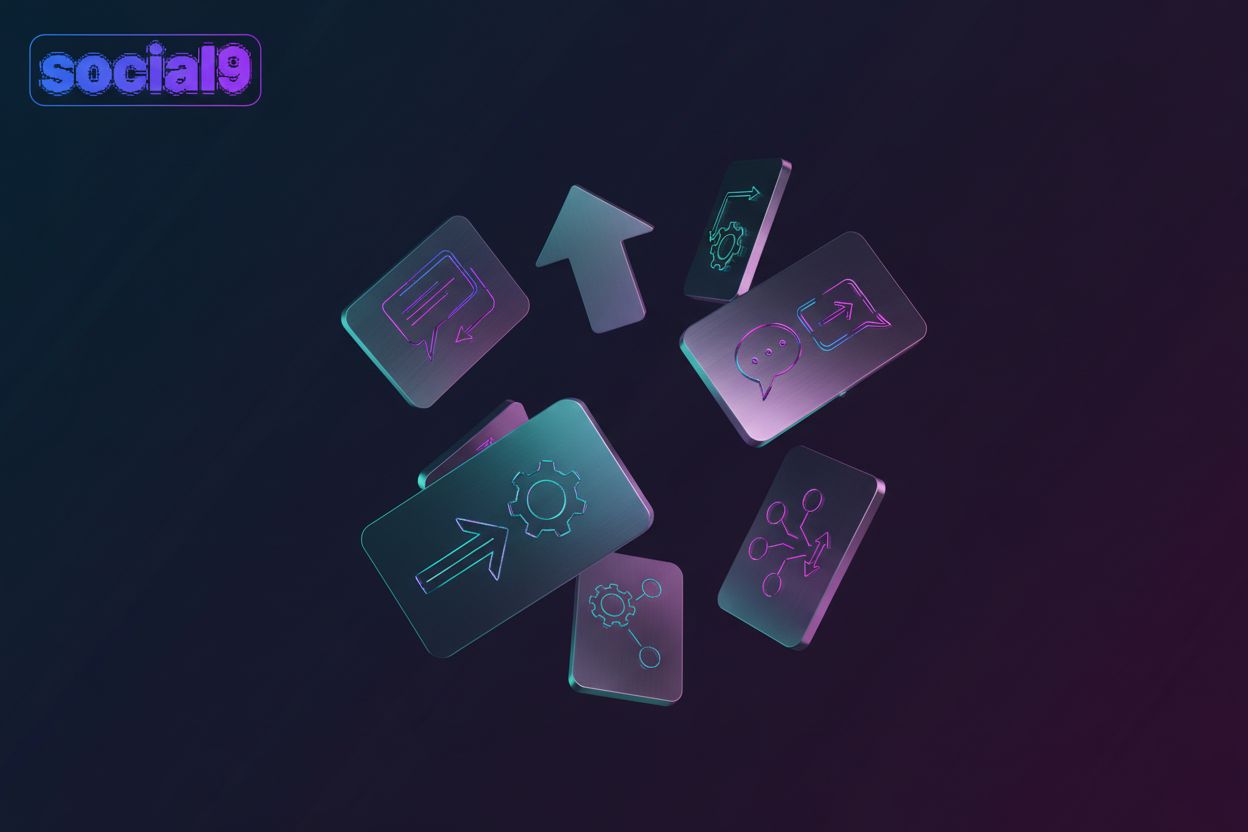Navigating the Ethical Minefield of AI-Generated Content: A Creator's Guide
TL;DR
Introduction: The Rise of AI in Content Creation
AI's really shaking things up in content creation, bringing both cool opportunities and some tricky ethical stuff. As ai tools get easier to grab, it's super important we get these ethical bits.
- ai boosts efficiency by doing things like writing and making images for us. (AI Productivity)
- It lets us scale up, so creators can churn out stuff way faster. (Faster and more efficient content production: the role of video ...)
- But, with these perks come worries about where the original ideas come from and how it might get misused.
ai tools like DALL-E and Midjourney are making image generation a lot more accessible, but then questions pop up about who actually owns it all. Capitol Technology University says there's ongoing chatter about who's in control, the power plays, and what ai really means long-term. (The Ethical Considerations of Artificial Intelligence)
As ai takes on a bigger role, content creators gotta figure out how to handle these ethical waters to keep things responsible and innovative. Let's dive into ai's benefits.
Understanding the Ethical Landscape
The ethical stuff in ai content creation isn't just some far-off idea; it's real-world problems we need to deal with. How do we make sure ai helps us out instead of messing with our creative and ethical standards?
Here's a look at some of the biggest ethical headaches:
- Intellectual property and copyright issues: Figuring out who owns ai-generated stuff is still kinda fuzzy. Who gets the copyright when ai makes art? Is it the person using it, the company that made the ai, or is it just out there for anyone?
- Bias and representation in ai-generated content: Ai models learn from what's already out there, and that data often has societal biases baked in. This can mean ai makes stuff that plays into stereotypes or is unfair to certain groups.
- Privacy and data consent challenges: Ai algorithms need tons of data, which brings up worries about how personal info gets collected, stored, and used. Making sure people agree to it and their data is safe is a big deal.
- Environmental impact of ai technologies: Training big ai models takes a lot of energy, which adds to carbon emissions and environmental problems. We need to think about sustainable ai to lessen this.
Content creators have a huge part to play in sorting out these ethical puzzles. Sticking to ethical standards isn't just the right thing to do, it can actually give you an edge.
- Creators are key to keeping things ethical: You gotta know the potential traps and actively work to avoid them in your content.
- Being aware and taking action matters: Staying up-to-date on the latest ethical guidelines and best ways to do things is super important for using ai right.
- Ethical content creation can be a differentiator: People are starting to really care about stuff that's made ethically and transparently, so it can make you stand out.
As we move forward, getting a handle on these ethical concerns will be vital for smart innovation and building a future where ai actually helps everyone. Next, we'll look at some practical ways to make sure your ai-generated content is original.
Intellectual Property and Copyright: Who Owns AI Art?
ai-generated art is kicking off debates about who really owns what's created. Is it the user, the ai developer, or does it just go into the public domain? Lummi points out how important ethics are getting in ai, especially when it comes to ownership and copyright.
Current intellectual property laws are kinda struggling to keep up with ai tech. Right now, it's a big gray area with rules that are all over the place, according to Lummi. This confusion can lead to fights over who has the rights to ai-made images.
The U.S. Copyright Office's take on it adds another layer of complexity. ai-generated works don't get copyright protection unless a human puts in a significant amount of work to create it, as Lummi mentioned. This just shows how uncertain things are with ai and intellectual property.
Creators really need to be mindful of artists' rights when using ai. Being upfront about it is key, so let people know if ai was involved in making your content.
As we work through these issues, the next section will talk about how creators can respect artists' rights and make sure their work is original.
Bias and Representation: Ensuring Fair and Inclusive Content
ai's knack for whipping up content fast can be a double-edged sword, potentially making existing societal biases even worse. How can creators make sure their ai-generated content is fair, includes everyone, and shows different viewpoints?
ai models learn from massive datasets, which often mirror historical and societal biases. This can lead to ai creating content that reinforces stereotypes or discriminates against certain groups.
As Lummi points out, ai can just repeat biases found in its training data, leading to "problematic portrayals of marginalized groups".
For instance, an ai trained mostly on data about men might have trouble showing women in leadership roles accurately. To fight this, content creators gotta:
- Be really careful about the data they use and make sure it's diverse.
- Regularly check ai outputs for any biased content.
- Use ai tools that are built to spot and fix bias.
ai can also be a super helpful tool for promoting diversity and inclusion in content creation. By intentionally using diverse datasets and algorithms, creators can make content that reflects a wider range of perspectives.
For example, ai can create personalized learning experiences that fit different learning styles and cultural backgrounds. It's really important to make sure ai tools are designed to encourage inclusivity and not just repeat stereotypes.
As we try to make content creation more fair, the next section will explore how ai affects originality and creativity.
Privacy and Consent: Protecting User Data in AI Content
ai-generated content relies a lot on user data, which makes privacy and consent really important ethical things to think about. How do we make sure user data is safe when we're creating content with ai?
Data privacy is a big deal. ai algorithms need huge amounts of data, including personal stuff, to work well. It's crucial to understand how this data is gathered, kept, and used so we don't end up with privacy breaches.
- Consent Requirements: Getting clear consent is a must. People need to know how their data will be used and have the option to say no.
- GDPR Implications: The General Data Protection Regulation (GDPR) has strict rules about processing data. Content creators have to follow these rules to avoid legal trouble.
Keeping user data safe means taking steps ahead of time. Being open and handling data ethically should be at the heart of how you create content with ai.
- Informed Consent: Clearly tell people how you collect data. Have easy-to-understand privacy policies.
- Anonymization: Make personal data anonymous whenever you can. This cuts down the risk of identifying individuals.
- Transparency: Be open about collecting and using data. Let people know what data you're collecting and how it's being used.
As we sort through the ethical side of ai, the next section will look at the environmental impact of ai technologies.
Environmental Impact: The Hidden Cost of AI Content
The environmental toll of ai often flies under the radar. Training complex models needs a ton of energy, leading to big carbon emissions.
Here's what's important to remember:
- Training ai models uses a lot of power.
- High energy use means more carbon emissions.
- Sustainable ai is key to cutting down environmental harm.
Content creators should really focus on ai practices that are good for the planet. Next, we'll talk about how to lower your carbon footprint.
Regulations and Policies: Navigating the Legal Landscape
Figuring out the changing legal rules around ai-generated content is super important for creators. As ai tech gets better, understanding the current and proposed regulations becomes essential for creating content responsibly.
Rules like GDPR and copyright laws offer some guidance, but they often don't directly cover ai-generated content.
Legal issues pop up because of unclear ownership and copyright questions, as intellectual property laws are still catching up.
International standards are starting to appear, but they aren't all the same, which makes things complicated for creators working globally.
Talks about new regulations are aimed at tackling ai ethics, including bias, privacy, and how data is used.
New policies might affect content creators by making them follow stricter rules.
Keeping up with these changing laws is vital; keep an eye on industry news and legal updates to make sure you're compliant.
As creators deal with these shifts, knowing how they might affect your work is key. Next, we'll explore some practical steps for making sure your ai-generated content is original.
The Future of Ethical AI Content Creation
The rise of ai in content creation brings a mix of excitement and ethical dilemmas. As content creators, understanding these challenges is essential for responsible innovation.
ai's future holds both promise and peril, blending technological progress with ethical considerations. Ongoing discussions are crucial to navigate emerging challenges and opportunities.
- Predictions: ai will likely produce more sophisticated content, but ethical standards must evolve to match this progress.
- Emerging Issues: We need to address issues like bias, privacy, and the environmental impact of ai technologies.
- Collaboration: Open discussions involving creators, policymakers, and the public are necessary to shape ethical guidelines.
Thinking about the future, it's crucial to consider how these ethical standards will shape content creation. Let's explore how Social9 can empower ethical content creation.
Conclusion: Embracing Responsible AI
The ethical dilemmas in ai content creation can feel overwhelming. But by prioritizing responsible practices, we can harness ai’s power for good.
Here’s how to embrace responsible ai:
- Stay informed: Keep up with the latest ethical guidelines and regulations.
- Be transparent: Disclose ai involvement in your content creation process.
- Promote diversity: Ensure ai models use diverse data to avoid bias.
Remember, ethical ai isn't just a responsibility; it's an opportunity to build a better, more creative future. Let's innovate responsibly.



